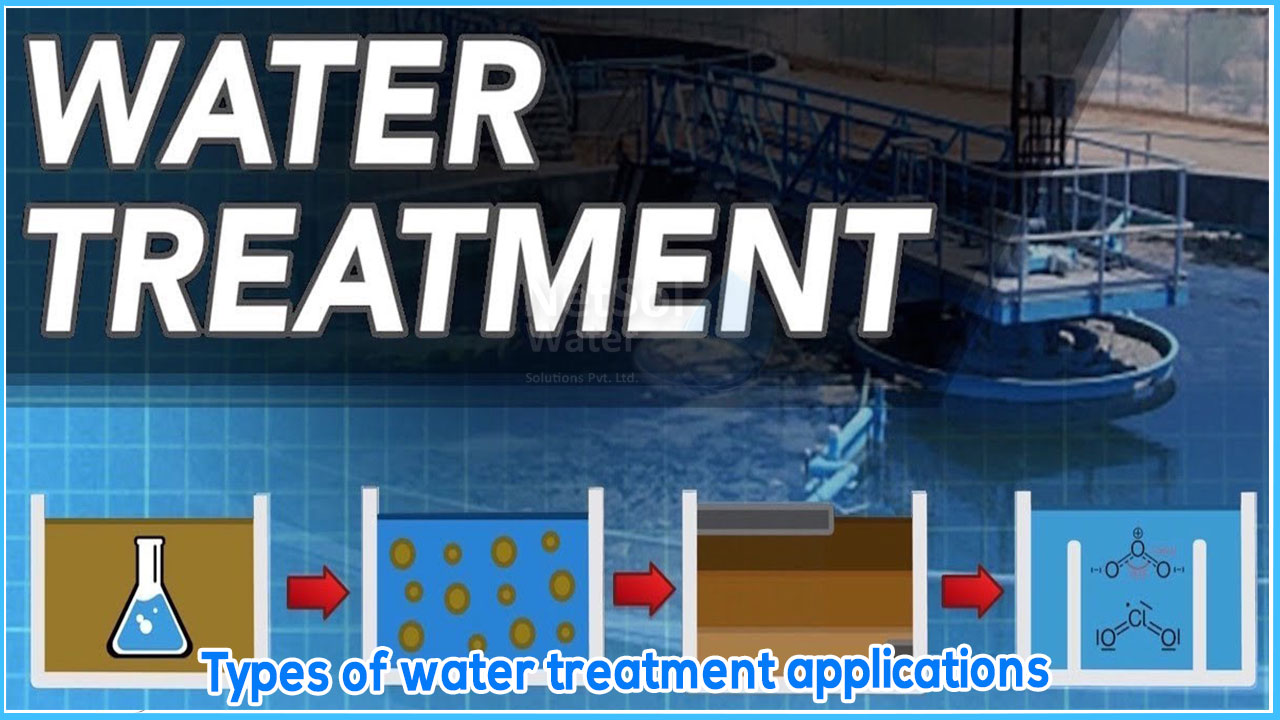Water treatment applications- From providing laboratories with centralised purification systems and clinical-grade water to implementing municipal drinking water systems and industrial sludge treatment, RO system finds its application in different sectors such as:
-Health
Centralised Laboratory Water
Water and distribution systems that create high-purity laboratory water in a central location.Centralised laboratory water systems are widely employed in a variety of settings and applications. Here are a few examples:
- Clinical Pathology
Clinical pathology involves the diagnosis of disease using laboratory testing processes applied to bodily fluids, blood and tissues along with the microscopic examination of individual cells. Clinical pathologists are healthcare professionals who are experts in the study of disease, the cause of disease and the effects. To support their analysis work, clinical pathology laboratories require a constant supply of high-purity, laboratory-grade water. The availability of clinical pathology water systems is critical, and the fines that analyser businesses face for unprocessed samples can be large.
- Endoscopy and Sterile Services
Patient safety is crucial, and healthcare providers strive to reduce the danger of cross infection as much as possible. A significant aspect of adequately controlling this risk is ensuring the reliable supply of pure water for sterile services. Whether you run a Central Sterile Services Department (CSSD) or a smaller cleaning facility, surgical equipment must be properly decontaminated and cleaned in high-quality pure water.
- Renal dialysis water treatment
Renal dialysis treatment will assist a patient's kidneys in removing salts and waste, maintaining acceptable levels of chemicals in the patient's blood, and maintaining blood pressure when their kidneys are not functioning normally. Renal dialysis necessitates the use of purified water. The filtered water's quality has a direct impact on the health of the patients. To be suitable for this application, renal dialysis water must meet high purity requirements.
-Industries
Industrial wastewater treatment is the process of removing organic and inorganic contaminants from effluent generated by industrial sites. The treated water can either be released into the environment, discharged to sewer or reused in plant processes. Wastewater treatment solutions that are both sustainable and cost-effective find their application in industrial sector. Technologies for wastewater treatment systems and sewage treatment plant operations that are safe and environmentally friendly are used in industries.Industrial effluents are diverse, containing different types and amounts of contamination. This means wastewater treatment processes must be adapted to fit each industry and plant.
-Municipal wastewater treatment
In our kitchens and toilets, we use a lot of water, which results in waste water that needs to be treated. Rainwater runs off of roadways, roofs, and land as well. All of this must be gathered in order to be treated and reused.
The process of purifying sewage and unclean water is referred to as municipal wastewater treatment. The elimination of impurities is followed by water purification at a sewage treatment plant. The treated water is then returned to the environment in a safe manner, ready to be used again.
-Point-of-use laboratory water
A laboratory water system that distributes ultrapure water on demand, just where it's needed, is known as a point-of-use system. Because the cleansed water is not disseminated via piping, which might compromise water quality, point-of-use laboratory water systems differ from centralised water purification systems.
-Process water
Water utilised in industry, manufacturing processes, power generation, and other related purposes is referred to as process water. Different industries and plants have vastly different process water requirements. Depending on the feed water and final water quality and volume requirements, water is produced utilising a variety of process water technologies.
-Drinking water treatment technologies
All countries require a consistent supply of safe drinking water. Nonetheless, there are numerous obstacles to achieving this on a constant basis. Populations are growing, expenditures are rising, and the impact on the environment must be reduced. Treatment technologies exist to extract contaminants and clean the water, removing any potential risks, from its natural condition to safe drinking water.
-Utility feed water
The water utilised in boilers and cooling towers is referred to as utility feed water. To optimise efficiency, maximise boiler and system life, reduce maintenance costs, and maintain acceptable levels of operational performance, the feed water used in these applications must be properly treated. Any dissolved minerals in the boiler feed water will be deposited on the inside of the boiler when it is heated to produce steam. This reduces the efficiency of a boiler system and necessitates descaling. Another potential issue is corrosion, which is produced by the reaction of metal components and piping with dissolved oxygen, carbon dioxide, and water with a low pH. Effective boiler feed water treatment prevents scaling and corrosion in boilers and cooling towers, resulting in increased system efficiency, longer system life, and lower maintenance costs.
-Wastewater recovery
The extraction of pure water from industrial wastewater and effluent is known as wastewater recovery. Within the facility, this reclaimed water can be recycled and reused for cooling tower or boiler blowdown processes. It can also be sold to be used for irrigation or other reasons.
We at Netsol provide all water solutions as discussed. We believe in customer satisfaction and 100% services to our customers.




